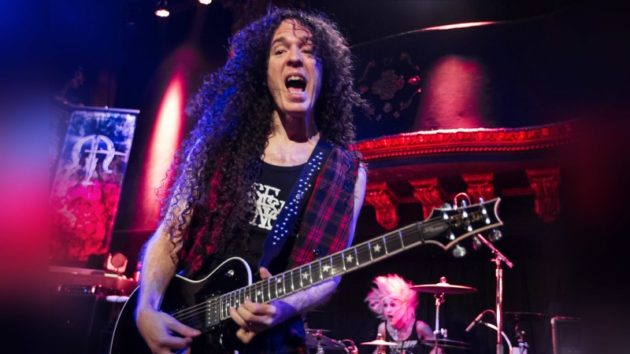
Marty Friedman (ex-Megadeth, ex-Cacophony, ex-Hawaii, ex-Deuce) has lived in Japan for 15 years. He moved to from America to Tokyo in 2003 and the experience has been on his own words “I just love it so much.” His time in Japan has been so intense that he was the first foreigner named by the Japanese government as Ambassador To Japan Heritage. Recently, he participated in a public question-and-answer session, “Ask Marty: An Insider’s View Of Japan Through The Eyes Of An American Rockstar”, at the Japan Foundation in Los Angeles. Let’s take a look on the things he said:
“It’s not like the ambassador where I’m going to have to do anything like press nuclear buttons. What Japan Heritage is, I think there’s 39 points of interest, so to speak, in Japan. All the cities lobby to get their points of interest listed as a Japan Heritage point of interest. I’m beyond flattered to be ask to do this. Basically, I think what they appointed me to do is what I’d be doing anyway — going to other countries and talking to people who are interested about Japan. I think the Japanese government got wind of it and they liked what I was doing, or maybe it’s some of the things that I do in Japan. Hopefully, [I’ll reach] people who are slightly curious about Japan. How many American guys are going to believe a Japanese guy talking about his own country, even though he’s going to tell you something that’s more meaningful than what I’d be able to tell you? Somehow, foreigners will relate to a foreigner when they’re explaining something because of the point-of-view.”
On tips to Americans who visit Japan:
“They are so curious about foreign people in Japan. I wish Americans were more curious about other countries. We have so many fantastic cultures living together in America, and it just doesn’t seem like they share the interest in other cultures as much as Japanese do… Don’t worry about, ‘Oh, I didn’t bow,’ or ‘I shook his hand when I shouldn’t have.’ Don’t worry about all this stuff you read about in the tourist books. Just be a nice person, and then you’ll represent your country [well].”
The differences between American and Japanese publics:
“This is a generalization. In Japan, the overall mindset is to not create trouble for other people and keep the peace. Always consider the other person first. In America, it’s [about] me — how do I stand out, and how do I be the best? Neither of these are bad things, and the ‘me’ mentality is fantastic for people who rise above a lot of hardships to create fantastic things, so I’m not saying there’s anything wrong with that at all. In Japan, it’s sort of frowned upon. The nail that stands up gets hit. In America, we’re brought up [being told], ‘You are number one. You can do anything.’ In Japan, it’s a group mentality. Both of these are fantastic. Trying to do the one that you’re not is not so good. What resonates with me about the Japan mentality is, when you are with a group of people who are really good at what you do and you succeed, you’re celebrating with a group of people, and that group celebration is just so much more enjoyable. It’s kind of lonesome when you’re celebrating something you did only by yourself. I find that if there’s someone I can share that success with, that’s a very sort of Japanese team mentality that I really enjoy. But on the other hand, had I not grown up in America and realized that if I’m working with someone who’s holding me back — I don’t want to be in this group; I want to do other things – that would have been frowned upon in Japan, and I wouldn’t have been able to be nurtured. It’s been beneficial to have both parts of those cultures in me.”